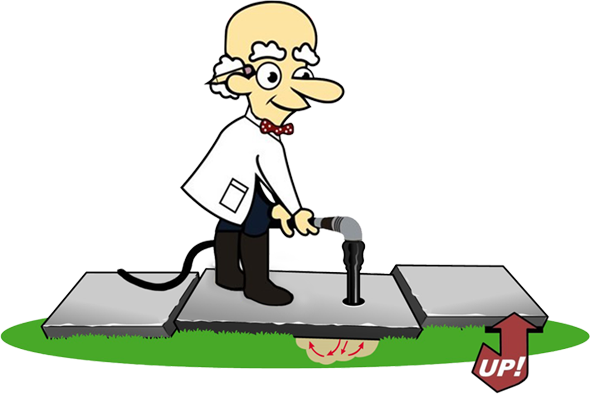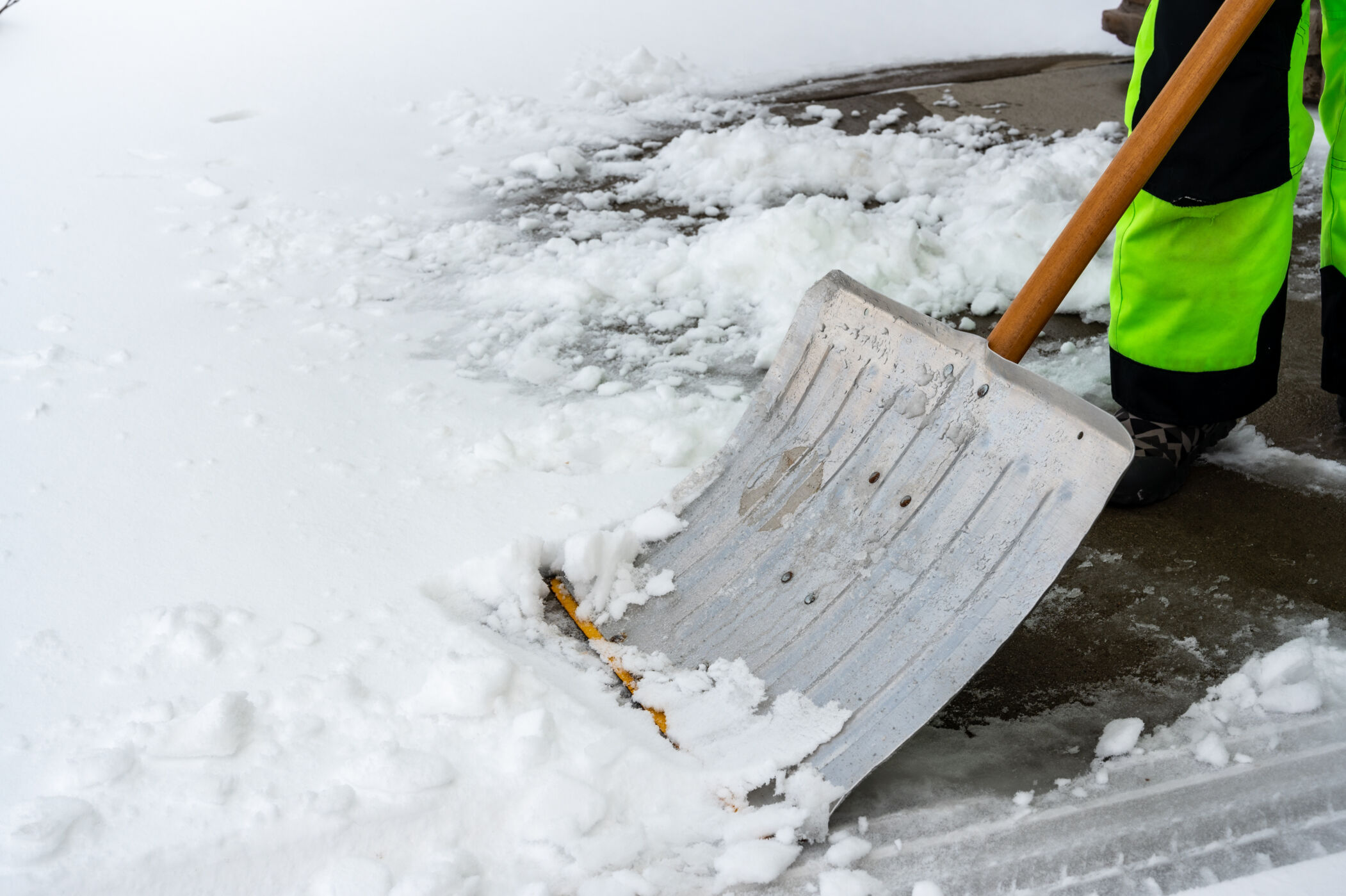IN THIS ARTICLE
By Kris Winters
February 13th, 2024
It has been a long-known fact that cold temperatures negatively affect concrete, especially during installation. But do the same facts apply to the concrete leveling process? Does this mean you must wait until spring to raise your concrete?
At Concrete Chiropractor, we’ve been lifting sunken concrete year-round in various temperatures for over two decades. The short answer is YES!
Can you Level Concrete in Cold Weather?
Unlike concrete installation, concrete jacking is not subject to surface failures from below-freezing temperatures, making this concrete repair process more forgiving during winter. With the concrete leveling process, there is zero risk of spalling or concrete freezing associated with concrete replacement. While concrete leveling comes with less risk of failure, some factors must be considered.
Factors to Consider with Cold Weather Concrete Leveling
Air Temperature
The ambient air temperature in which water and subsoil begin to freeze is 32 degrees Fahrenheit. This can affect materials used in the concrete leveling process.
Concrete leveling can still typically be done if nighttime temperatures fall below 32 degrees briefly but rise above freezing during daytime hours.
Ground Temperature
Frozen subgrade, or (ground), can cause concrete slabs to freeze and stick to the surface, preventing the slabs from raising. Also, once the ground has frozen and expanded, the soil will defrost and contract when temperatures rise, causing the concrete to settle.
Note: Interior slabs such as home or warehouse floors, which are not subject to frozen ground, can be raised year-round.
Can Mudjacking Be Done in Cold Weather?
Yes. Mudjacking can be done in cold weather, provided the material does not freeze during mixing and the soils have not frozen solid from low temperatures.
The mudjacking process has successfully been used for decades with proper planning to raise concrete during cold temperatures.
Can Concrete Lifting with Foam Be Done in Cold Weather?
Concrete lifting foam or “polyjacking” uses a two-part temperature-sensitive product. Certain product temperatures must be maintained for the chemical reaction, or there can be complications. Injecting the product under a concrete slab and onto cold soil subsurface can result in complications such as:
- Poor product strength
- The potential of chemical leaching or off-gassing
Yes. Concrete lifting foam can be used during cold temperatures. However, the product is heat-dependent to achieve proper quality and strength. Cold ground can absorb heat from the foam, diminishing product quality and strength.
Is it Okay to Lift Concrete in Cold Weather?
Don’t let cold weather hold you back if you are considering requesting a concrete leveling repair estimate. Concrete leveling estimates can be provided year-round, and uneven concrete slabs can often be repaired even during cold winters.
Periods of unseasonably warm weather also occur during the winter months, leaving a great window of opportunity to have your concrete leveling repair completed.
Concrete Chiropractor’s team of experts has decades of experience raising sunken concrete around all weather conditions. We are a professional concrete leveling service that has helped thousands of homeowners avoid the cost of concrete replacement.
To see what concrete leveling can do for you, click the link below to request an estimate from our seasoned professionals.
Click Here to Receive a FREE Estimate From Your Nearest Location
Want to know more? Check out these related topics or visit our Learning Center
Mudjacking vs. Poly Jacking: Which is The Better Choice?
How Does A Concrete Leveling Appointment Work?
Concrete Repair: The Cost of Doing Nothing
- Garage Floor Raising and Coating: The Ultimate Guide - June 4, 2024
- Mudjacking Cost: 5 Factors That Affect It - April 10, 2024
- What is The Average Cost of Concrete Leveling in Belle Mead, NJ? - April 4, 2024



